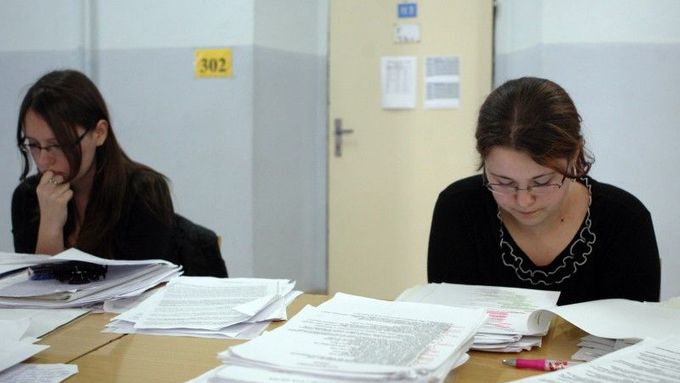Prague - The Czech higher education system struggles to compete among neighboring nations while the likelihood of implementing university tuition is debated.
Holding one of the lowest graduation rates in the European Union, the Czech government is considering the possibility of a tuition based system to ease the accumulating deficits in government spending. Advocates of the tuition system argue that introducing a system of loans and tuition fees in addition to government funds could increase competition and generate a greater amount of applicants in universities.
"A universal system of loans and special-needs based grants will allow more students to study at the university level while opening opportunities to work during their studies," said Petr Mateju, chief advisor to the Minister of Education. Mateju stated that tuition should be used as an instrument to give students and professors an incentive to take education seriously.
Statistics from the Organization for Economic Co-operation and Development show that despite the high number of university entrants, the Czech Republic has a graduation rate of 35%, falling behind post-communist neighbors Poland (49%) and Slovakia (39%). More surprisingly, only 14% of Czechs aged 25-64 have obtained a degree.

"A tuition fee could induce responsible behavior on both sides of the professor and the student," said Krystof Kozak, professor at Charles University in Prague. "However, tuition should not be a hurdle for any student."
The Student's Chamber of the Council of Higher Education Institutions fears that the introduction of tuition fees in universities will hinder accessibility to higher education and will strengthen existing inequalities in social conditions, said spokesperson Miloslav Jasurek.
"Though the current situation is disappointing," said Jasurek in reference to the lack of public funds, "accepting private funds from commercial institutions would endanger academic independence as businesses will inject their own private interests by partaking in the board of trustees."
Jasurek added, "We are, however, encouraging government sponsored loans and scholarships. The Czech Republic's spending on education is well below the OECD level as well as the European Union level."
According to the OECD, total spending increased from 33% in 2005 to 36% of GDP per capita in 2006, compared with an OECD average of 40%.
"The heart of the problem is the differing views of higher education," Kozak said. While some hold onto the steadfast belief that education should be an apparatus to self-enrichment, it's become increasingly popular to train students for future skills-based occupations.
"The current system is not ideal. We need more funding from the government to be able to compete with other EU nations," Jasurek said.
Earlier this year, the White Book of Tertiary Education, a reform proposal, was passed by the former Prime Minister Mirek Topolánek before the government collapsed in March.
While the status of the bill is indefinitely in review, the White Book states that tuition fees should supplement, not replace public funding.
Mateju stressed, "The goal is to increase motivation among students and universities. It is primary to make alterations to the mechanism of allocating funds. By doing so, we will be creating competition at home so that we may be able to compete on the global scale."
This story was originally published by the Prague Wanderer, a web-zine run by New York University students in Prague, Czech Republic.
Teressa Son is a junior in the College of Arts & Sciences, double majoring in journalism and economics.










